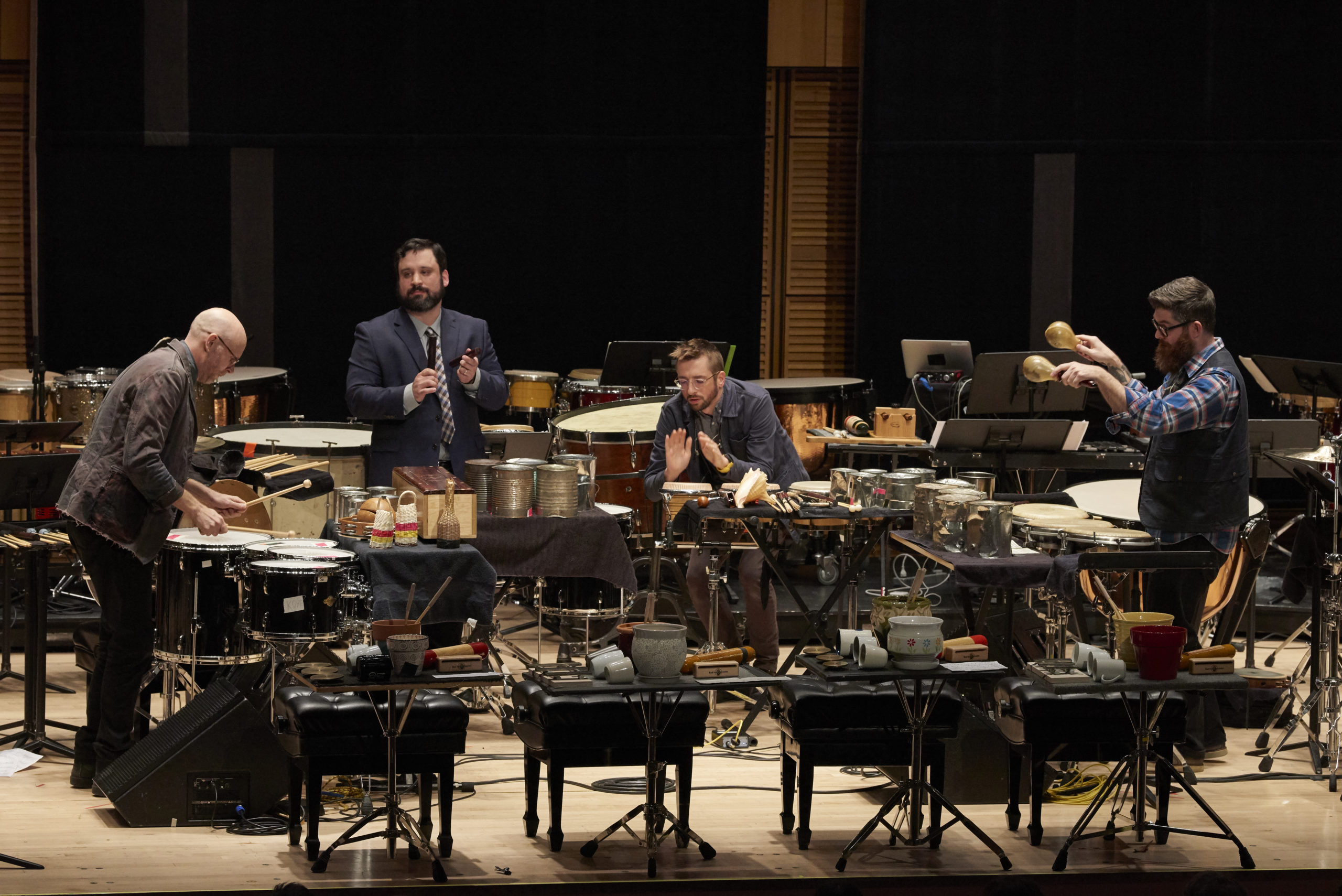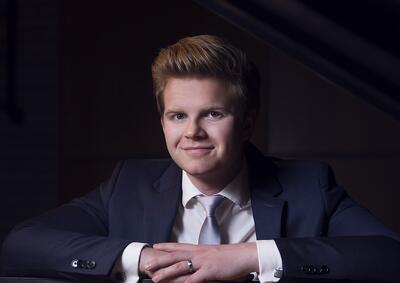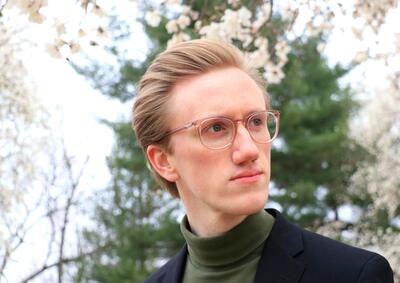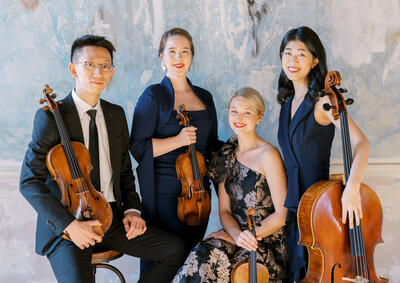Sō Percussion brings YSM ethos to its work
On Tuesday, Feb. 28, the quartet Sō Percussion—YSM alums Eric Cha-Beach ’07MM, Josh Quillen ’06MM, Adam Sliwinski ’03MM ’04MMA ’09DMA, and Jason Treuting ’01MM ’02AD—will perform a program of music by Vijay Iyer ’92BS, Nathalie Joachim, Treuting, Caroline Shaw ’07MM, and Bryce Dessner ’98BA ’99MM. We spoke with Sliwinski about Sō Percussion’s ethos and mission, its connections to Yale, and the repertoire the quartet is working to imagine and build.
Q: How did YSM inform the ethos of Sō Percussion and what does it mean to return to perform at your alma mater?
This is a wonderful question to ponder, because the ways in which the YSM formed us have been baked into our culture for so long. There are two huge components to this: the School itself and Robert van Sice's percussion studio.
The atmosphere at Yale encouraged us all to think not only as excellent musicians, but as leaders. Why are you doing something? In what ways is the received tradition helpful, and where would you like to see it changed? All of my classes with teachers like Paul Hawkshaw and Michael Friedmann challenged me to think about how well I really knew a score, or whether a cliché about a composer like Stravinsky held up to scrutiny. We were invited to make our own investigations and prove our points. Performers do not always receive these kinds of provocations in their conservatory education, and it galvanized us to think about the music we were commissioning and producing.
Van Sice's percussion studio is quite simply the reason we exist. In his first years at Yale, he scoured undergraduate programs across the country looking for all the "weirdos" (my word, not his) who were interested in learning about other ways to make music with percussion. Most conservatory programs at the time were oriented around orchestral education, and van Sice, while carrying an extremely high standard in that area, attracted students who were not satisfied with everything that it offered. We came to study solo marimba, contemporary music, and percussion chamber music. We brought with us experience in drum set, steel drums, orchestral playing, gamelan, technology, and a host of other things.
The stew this created was magical. In retrospect, I can't believe how lucky I was to end up around all of those people at that time. Sō Percussion came directly out of studying the challenging and brilliant repertoire he assigned us, and also the techniques that he used to teach it to us. We thought "surely there could be more of this kind of music, and maybe people will like it." So we started commissioning new works, particularly David Lang's epic work the so-called laws of nature, which put us on the map in New York and helped us start our career.
Q: The Feb. 28 program is rich in Yale connections. How did that come about and why?
As I mentioned with David Lang's piece, Yale connections were crucial in starting our career. Bryce Dessner was a student in the audience when we gave the first workshop performance of Lang's piece in New Haven before premiering it in New York. Dessner has mentioned that experience as providing a kernel of inspiration for what he would eventually write in Music for Wood and Strings.
The very fact that Jason Treuting started writing his own music, including his acclaimed project amid the noise, came out of taking Martin Bresnick's class "Composing for Performers" (I believe that's what it was called). In that class, Bresnick tasked the students with considering many different musical parameters and tackling them in a focused way. It was the first time Jason had been encouraged to write his own music, and he got hooked!
Caroline Shaw was a violin major at Yale, overlapping with Josh and Eric, and our association with her began out of just the casual circumstances of them playing in the Yale Philharmonia together. When we taught our first course at Princeton for composers, Caroline was a student there, and the work called Taxidermy on this concert was her final project for the class. We have since made a number of large works together with her and toured the world as a band.
Q: How has the group, its work, and its mission developed since its establishment in 1999?
At first, we were laser-focused on commissioning new pieces from composers. The repertoire that existed at that point was small, and we thought we could help to build a larger culture for percussion music. That remains at the core of what we do.
Starting with Treuting's amid the noise, we also incorporated our own original work. The creativity from composing for ourselves as a band has leaked into all of the work we do with composers as well.
Finally, our mission as educators has expanded over the years, and constitutes a great deal of what we do. For almost a decade, we have been the Edward T. Cone performers-in-residence at Princeton University, where we work closely with graduate composers, give concerts, coach chamber music, and design and teach courses on rhythm to undergraduates. We are also about to hold our fifteenth annual Sō Percussion Summer Institute, which now has over 300 alumni from around the world who have made their own unique contributions to creating a vital culture of new music.
I would also take this opportunity to shout out the other past members of Sō Percussion who have moved on from the group, all YSM alums: founders Doug Perkins, Todd Meehan, and Tim Feeney, and Lawson White.
Q: What projects is the quartet looking forward to?
We have been touring our latest project with Caroline Shaw, an album called Let the Soil Play Its Simple Part. The project has had an incredible run, even despite the pandemic, and we are really looking forward to going back in the studio with her soon to make new work.
Next year, we are going to be touring with our collaborator Shodekeh Talifero, who is a beatboxer, breath artist, and vocal percussionist. He composed a piece for us called Vodalities, in which vocal percussion and physical percussion create a dialogue together.
In the fall, we will be premiering a number of new works at Carnegie Hall by Vijay Iyer, the West African composer/choreographer Olivier Tarpaga, Angélica Negrón, and Jason Treuting.
Q: What are you all reading, watching, and listening to?
We are following all of the news about technology and artificial intelligence, and continuing to look for positive ways within experimental music to incorporate technology that is human-centered. Our work by Nathalie Joachim on the concert, which uses snippets of her voice triggered by electronic drum pads, is a great example of how technological thinking can produce humanistic music.
I am personally one-and-a-half books into my first go through Marcel Proust's In Search of Lost Time, in part because I am concerned with retaining my powers of concentration and attention as our culture continues to accelerate and fracture. I'd highly recommend it to anybody! It isn't really difficult to read, just sort of long and occasionally slow. There are many sublime passages relating to music and memory.
Sō Percussion performs music by Vijay Iyer ’92BS, Nathalie Joachim, Treuting, Caroline Shaw ’07MM, and Bryce Dessner ’98BA ’99MM on Tuesday, Feb. 28, at 7:30 p.m., in Morse Recital Hall in Sprague Memorial Hall. Learn more here.






